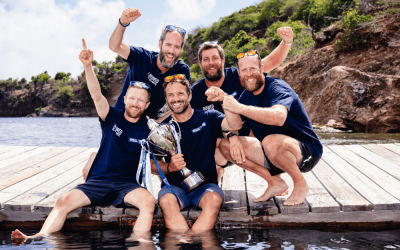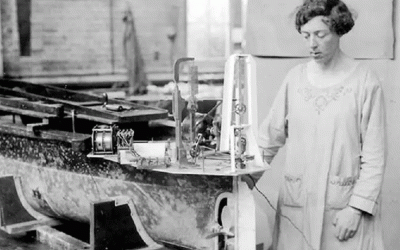Ship & Boat International: January/February 2017

Cox Powertrain is planning to bring a new and unique diesel outboard concept to market in 2018. Originally developed for the Formula 1 (F1) circuit by motor sports engineer (and company co-founder) David Cox, the technology that forms the core of the CXO300 outboard has certainly been around the track in terms of development and interest.
Although the engine never made it into F1, Lockheed Martin picked up on the technology, with a view to incorporating it into unmanned aerial vehicle (UAV) design. This offer was to lure Cox and his investors to the marine sector, and sparked interest from the UK Ministry of Defence (MoD). The MoD’s Defence Science and Technology Laboratory (DSTL) was so impressed by the concept, it provided Cox Powertrain with “invaluable technical assistance” in further developing the CXO300 for marine use, as well as £2.5 million (US$3.18 million) of funding.
Since then, the CXO300 has attracted £60 million worth of investment by launch, enabling Cox Powertrain to set up its own assembly facility in the UK and to grow its team to 65 people.
The swell of interest in diesel outboards can partly be accredited to NATO’s single fuel policy; the naval forces of member countries are keen to phase out petrol-fuelled outboards in favour of cleaner diesel alternatives. “By 2021, the US and UK governments want their defence and military craft to go completely diesel,” Joel Reid, business development manager at Cox Powertrain, tells Ship & Boat International. “The UK Navy doesn’t want to use petrol engines, and has specified diesel outboards for its RIB replacement programme. Bunkering petrol is a nightmare; paranoia regarding the possibility of a terrorist attack means that few ports store more than 1,000litres of petrol each.”
Typical 2-stroke, V6 engines are heavy and take up large amounts of deck space, making them impractical for light response craft and RIBs, Reid adds. Aside from military interests, diesel outboards could also appeal to offshore crew transfer vessel operators, who “certainly don’t want petrol engines getting too close to oil rigs,” warns Reid. “Also, you need to insure petrol-based engines and a number of offshore wind farm support vessel operators have found that these insurance costs are very high.”
Reid describes the CXO300 as being “more like a diesel stern drive than a petrol engine” – and with a longer lifespan to boot. Weighing 300kg and measuring 1.9m (h) x 997mm (l) x 672mm (w), the 3.7litre outboard has been manufactured to the specifications of the company’s Opposed Piston Diesel (OPD) concept, featuring a vertical crank and four cylinders with two pistons on each side. The engine can generate 261kW at the crank, evening out at approximately 224kW (or 300hp, hence the outboard’s name) at the propeller – though, Reid hints, a propeller rating of 320hp / 239kW could be possible. The CXO300’s maximum torque is rated 550Nm at 4,500rpm.
The swap to diesel could result in “20-25% less fuel consumption”, Reid says. He adds: “The CXO300 achieves one unit of hp per every 1kg of weight. In contrast, the average V6 engine achieves a single unit of hp for every 2kg of weight.” Cox Powertrain estimates that the CXO300 should be fit to undergo 1,200 hours of continual use yearly before requiring maintenance.
Foreshadowing the product’s 2018 commercial launch, Reid says: “In 2017, we’ll be producing 43 field evaluation units, which will go into the field for Gamma testing.” The group also plans to establish itself in a further 30 locations before 2017 is out.





